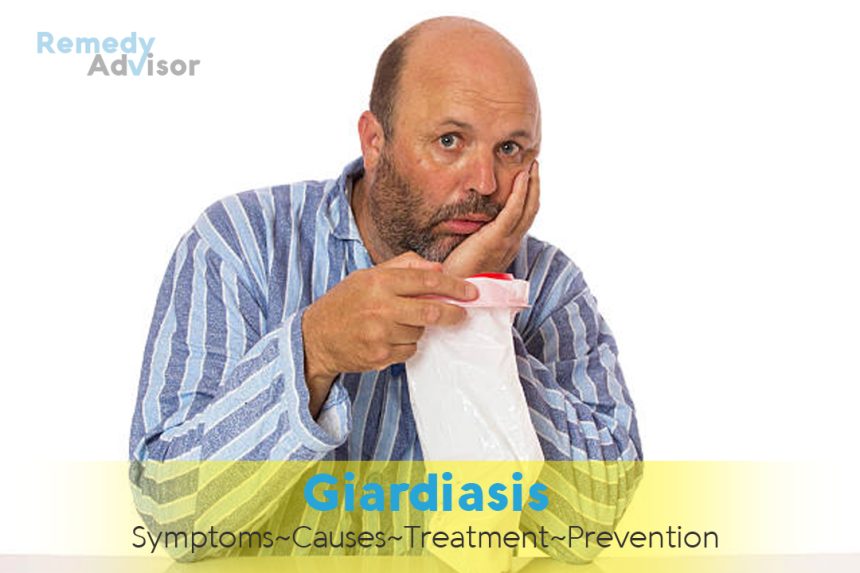What is it
Giardiasis, an intestinal infection of the small bowel caused by the microscopic parasite Giardia lamblia, is the most common parasitic infection in the United States. Most commonly, the parasite passes from the feces of an infected person or animal into a food or water supply and is then ingested. The parasite can also pass from one person to another through oral-genital sexual contact and, more rarely, by hand contact. The parasites then colonize in the small intestine. Symptoms usually appear within one to two weeks after exposure.
Symptoms
Symptoms include the following (though about two thirds of infected people have no symptoms):
- Mild to severe diarrhea that is foul-smelling (rotten-egg odor) and frequent (2 to 10 stools a day). The diarrhea may last one or more weeks, accompanied by one or more of the following: fatigue, abdominal pain, cramps, gas, bloating, or swelling. (Diarrhea from giardiasis is not associated with fever or blood in the stool.)
- Loss of appetite and possible weight loss.
What causes it
Most infections stem from ingesting fecally contaminated water or the fecal-oral transfer of the Giardia lamblia from an infected person. Giardia occurs worldwide and is most common in developing countries or areas where sanitation and hygiene are substandard. In the United States it also turns up among campers and hikers who have drunk unpurified water from streams contaminated by animal and human feces. But the most common sites of infection are now day-care centers and preschools, which now account for about half of the giardiasis cases. In many centers children’s soiled diapers harbor millions of the parasites, and both staff and children risk becoming infected after diaper changes if they don’t carefully wash their hands.
What if you do nothing
Giardiasis with mild diarrhea typically clears up by itself without any treatment. However, in some cases, if left untreated, symptoms become chronic and recur intermittently. With proper medical treatment, recovery is complete.
Home remedies
There are no effective home remedies to treat giardiasis. It is usually treated with prescription medication typically metronidazole (Flagyl) for adults and furazolidone (Furoxone) for children. No alcohol can be consumed while taking metronidazole and it shouldn’t be taken during the first trimester of pregnancy.
Prevention
Wash your hands carefully after toilet visits
Wash thoroughly and often, throughout the day, to avoid catching the infection from other people. Pay special attention to the fingernails, which can harbor the parasite.
Boil water gathered outdoors
When you are camping or hiking, no matter how crystal clear and safe water from a stream, pond, river, or lake may seem, boil any water for three minutes before drinking it. If in doubt, carry your own bottled water or use an appropriate water filter.
In developing countries, don’t drink from the tap
If you are traveling in developing areas of Latin America, Asia, or Africa, or if you are in any location where conditions seem unsanitary, drink only bottled water, carbonated drinks, or drinks you open yourself Don’t brush your teeth or wash dishes with any water that hasn’t been bottled or boiled. Also, don’t add ice cubes to drinks.
Wash your food
When traveling in developing countries, be sure to peel all raw fruits and vegetables before eating them in case the foods have been rinsed in contaminated water or handled by an infected person.







